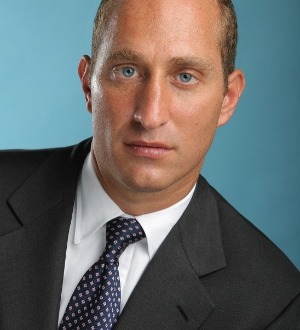COVID-19 has disrupted the ordinary course of dealings in both the residential leasing and sales sectors, with renters and buyers using COVID-related excuses and delays in attempt to avoid paying rent and close on sales in a fluctuating market. However, using a distinct combination of deep institutional knowledge about the Real Estate market, aggressive litigation tactics, and a familiarity with the Courts and practices across New York, Adam Leitman Bailey, P.C. has consistently helped its clients avoid such losses and maximize their real estate values, even as the pandemic enters its latest phase.
Adam Leitman Bailey, P.C.’s client was the well-known landlord of a Manhattan residential rental property that had inherited a notoriously difficult rent-stabilized tenant. For more than two years before the pandemic, this tenant had refused to pay use and occupancy on his apartment, alleging the need for various minor repairs that purportedly diminished his enjoyment. After a series of contentious litigations and negotiations, the landlord scheduled inspections and repairs that would have entirely resolved the tenant’s complaints. However, using the COVID-19 pandemic as an excuse to avoid paying arrears and any use and occupancy for his apartment - even beyond any relief that may have been provided in COVID-relief authorizations - the tenant not only refused to allow the landlord to conduct any inspections or repairs, he refused to even grant the landlord required access to his apartment to determine the veracity of his allegations.
Because the New York Landlord-Tenant Courts were hopelessly backlogged during this period, Adam Leitman Bailey, P.C.’s Landlord-Tenant and Supreme Court practice groups had the novel idea of filing a complaint in the New York County Supreme Court – where cases were now moving at much faster pace – for, among other things, breach of contract and mandatory injunction, seeking arrears and access to the apartment. Adam Leitman Bailey, P.C. aggressively pursued early discovery and court intervention. As a result, the tenant was compelled to sit for a damaging deposition during which Adam Leitman Bailey, P.C. Supreme Court Practice Group Partner, Eric S. Askanase, forced the tenant’s admissions that, among other things, his sole reason for withholding U&O was based on the purported need for repairs to the apartment, but his refusal to provide access prevented any such repairs. Moreover, during the deposition, Adam Leitman Bailey, P.C. was able to secure the tenant’s agreement to provide access for repairs and sign necessary leasing paperwork that resolved part of the dispute. As the deposition ended, the tenant commented that he was utterly unprepared for the level of detail Adam Leitman Bailey, P.C. brought to the table.
As a result of this disastrous deposition and Adam Leitman Bailey, P.C.’s follow-up discovery demands exploring the tenant’s various admissions, tenant’s counsel promptly reached out Adam Leitman Bailey, P.C. to settle in full, with the tenant agreeing to pay off almost his entire arrears – including amounts due from both before and during the pandemic – in exchange for the landlord’s withdrawing the Supreme Court action.
Carolyn Z. Rualo and Dov Treiman of the Landlord-Tenant Practice Group, and Eric S. Askanase of the Supreme Court Practice, represented the landlord in the action for arrears.
















